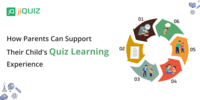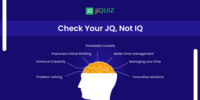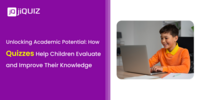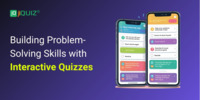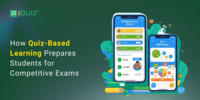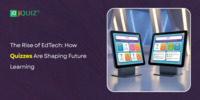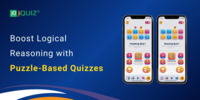- Jun 20, 2025
Share this post on:
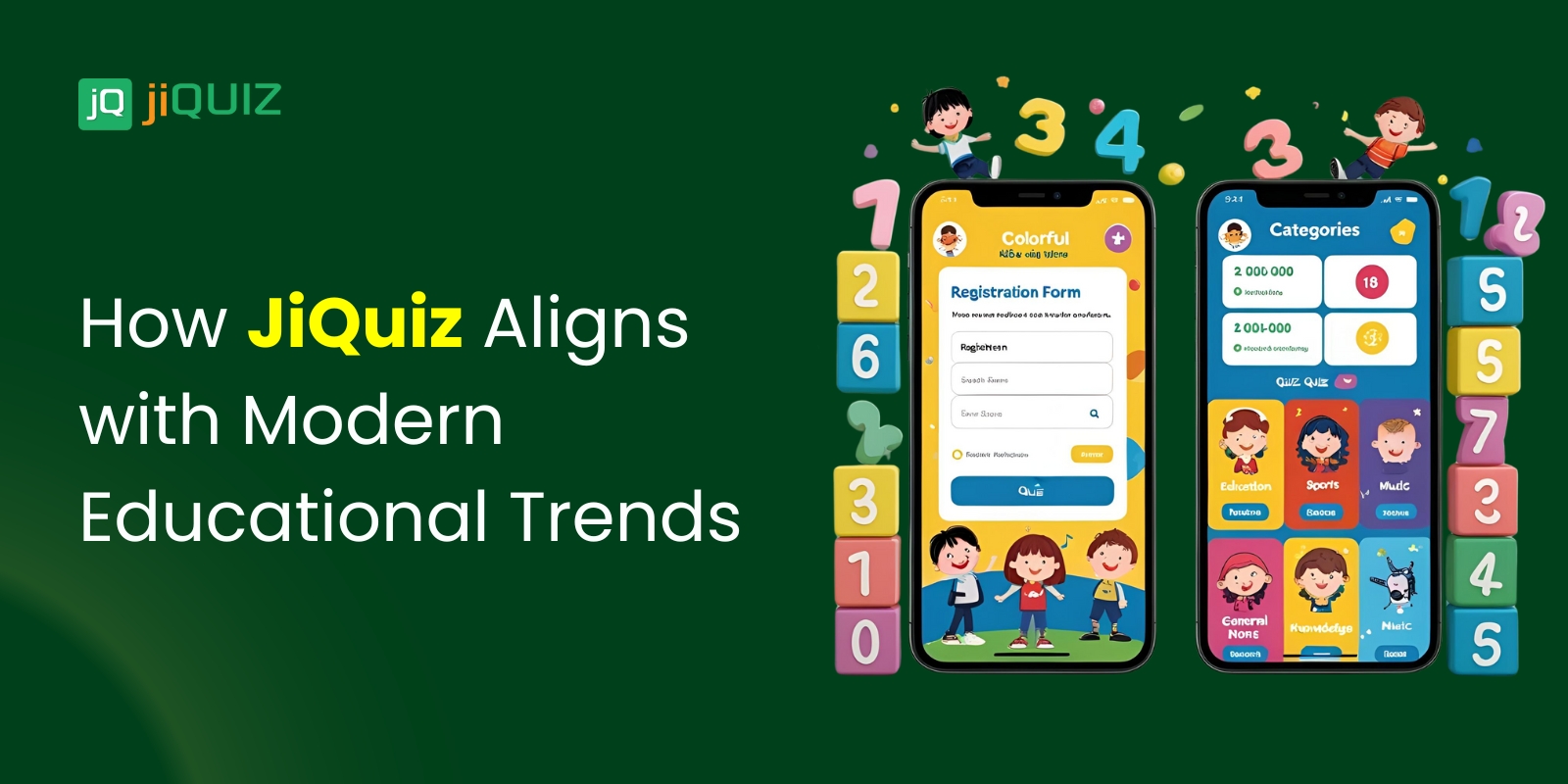
The landscape of education is rapidly evolving. Gone are the days of rote memorization and passive lectures. Today's learners demand engaging, personalized, and relevant learning experiences. Simultaneously, educators are seeking tools that can effectively manage diverse learning needs and demonstrate student progress. Enter JiQuiz, a platform positioned to not only meet but actively contribute to these modern educational trends. This blog post will explore how JiQuiz aligns with, and even helps drive, the key shifts occurring in modern education, examining its potential and impact on learning outcomes.
1. The Rise of Personalized Learning: Catering to Individual Needs
Personalized learning is arguably the defining trend in education. The "one-size-fits-all" approach is increasingly recognized as ineffective, as students learn at different paces, possess varying prior knowledge, and respond differently to teaching styles. Effective personalization goes beyond simply providing differentiated worksheets; it involves understanding a student's strengths, weaknesses, interests, and preferred learning methods, and tailoring instruction accordingly.
JiQuiz directly supports personalized learning in several ways:
- Adaptive Question Difficulty: Many JiQuiz features allow for dynamic adjustment of question difficulty based on student performance. This ensures that learners are challenged appropriately, avoiding frustration and maximizing engagement. Students who grasp concepts quickly are presented with more complex questions, while those needing support receive simpler ones.
- Customizable Quizzes and Assessments: Educators can create quizzes targeted to specific learning objectives and tailored to individual student needs. This allows for remediation in areas where students are struggling or for accelerated learning for those who are ready.
- Learning Paths: JiQuiz can facilitate the creation of individualized learning pathways. Based on performance on initial assessments, students can be directed to specific quizzes or content designed to address gaps in their knowledge.
- Targeted Remediation: Analyzing student responses provides insights into areas of weakness, allowing teachers to provide targeted remediation activities or provide students with specific resources to review.
2. Gamification: Making Learning Fun and Engaging
Let's be honest: traditional assessments can be daunting and demotivating. Gamification – the application of game-design elements and game principles in non-game contexts – offers a powerful solution. By incorporating elements like points, badges, leaderboards, and progress bars, JiQuiz can transform learning from a chore into an enjoyable and rewarding experience.
Here's how JiQuiz aligns with gamification trends:
- Points and Badges: The platform allows for the assignment of points for correct answers and the awarding of badges for achievements. This creates a sense of accomplishment and motivates students to strive for mastery.
- Leaderboards (Optional): While optional (and requiring careful implementation to avoid discouraging less confident learners), leaderboards can foster healthy competition and encourage students to push themselves. The ability to customize visibility settings is crucial here.
- Progress Tracking: Visual progress bars and clear indicators of mastery provide learners with a sense of control and momentum, keeping them engaged and motivated to continue learning.
- Narrative and Storytelling: While not always explicitly built-in, JiQuiz allows for the incorporation of narratives or scenarios into quizzes, transforming them from simple assessments into interactive learning experiences.
3. Data-Driven Instruction: Using Insights to Improve Learning
Modern education is increasingly reliant on data to inform instructional decisions. Educators need tools that can provide meaningful insights into student learning, allowing them to identify areas of strength and weakness and tailor their teaching accordingly.
JiQuiz facilitates data-driven instruction through:
- Detailed Analytics: The platform provides educators with detailed analytics on student performance, including overall scores, individual question performance, and time spent on each question.
- Identifying Learning Gaps: Analyzing aggregate data can reveal common misconceptions or areas where students are consistently struggling. This allows teachers to adjust their instruction or provide targeted interventions.
- Formative Assessment: JiQuiz quizzes can be used as formative assessments, providing ongoing feedback to both students and teachers. This allows for adjustments to instruction in real-time.
- Predictive Analytics (Potential Future Development): Future development could incorporate predictive analytics, using historical data to identify students who may be at risk of falling behind and providing targeted support.
4. Microlearning: Bite-Sized Knowledge for Maximum Retention
The attention spans of today’s learners are often shorter, and the sheer volume of information can be overwhelming. Microlearning – delivering content in short, focused bursts – is a trend designed to address this challenge. JiQuiz supports microlearning through its ability to create:
- Short, Focused Quizzes: Educators can create quizzes that focus on specific learning objectives, breaking down complex topics into manageable chunks.
- Spaced Repetition (Potential Integration): While not a core feature currently, integrating spaced repetition – reviewing material at increasing intervals – would significantly enhance JiQuiz's microlearning capabilities. This ensures that information is retained over time.
- Just-in-Time Learning: JiQuiz can be used to provide learners with quick refreshers or review material before a test or presentation.
5. Accessibility and Inclusive Learning:
Modern education strives for inclusivity, ensuring that all learners, regardless of their abilities or backgrounds, have access to high-quality learning experiences. JiQuiz needs to actively contribute to this goal.
- Customizable Font Sizes and Color Contrast: Offering options to adjust font sizes and color contrast can significantly improve accessibility for students with visual impairments.
- Alternative Text for Images: Providing alternative text descriptions for images allows screen readers to convey the content to visually impaired learners.
- Keyboard Navigation: Ensuring that the platform can be navigated using only a keyboard is crucial for students with motor impairments.
- Multilingual Support: Expanding language support broadens accessibility for non-native speakers.
- Captioning/Transcripts (for video/audio content): If JiQuiz integrates with video or audio content, providing captions and transcripts is essential.
Challenges and Future Directions:
While JiQuiz demonstrates significant alignment with modern educational trends, there are also challenges to consider and areas for future development:
- Over-Reliance on Gamification: Care must be taken to ensure that gamification elements enhance learning rather than distract from it. Focus should remain on mastery of the content.
- Data Privacy and Security: Protecting student data is paramount. Robust security measures and compliance with privacy regulations are essential.
- Teacher Training: Educators need adequate training on how to effectively utilize JiQuiz and interpret the data it provides.
- Integration with Learning Management Systems (LMS): Seamless integration with popular LMS platforms is crucial for ease of use and workflow.
- AI-Powered Personalized Feedback: Future development could incorporate AI to provide students with personalized feedback on their answers, explaining the reasoning behind correct and incorrect responses.
- Content Creation Tools: Providing educators with user-friendly tools to create engaging and interactive quizzes would further enhance the platform's value.
- Collaboration Features: Enabling students to collaborate on quizzes or provide peer feedback could foster a more engaging and interactive learning experience.
Conclusion:
JiQuiz possesses the potential to be a powerful tool for educators seeking to embrace modern educational trends. By prioritizing personalization, gamification, data-driven instruction, microlearning, and accessibility, JiQuiz can help create more engaging, effective, and equitable learning experiences for all students. Continuous innovation and a commitment to addressing the evolving needs of learners and educators will be key to ensuring JiQuiz remains at the forefront of educational technology. The platform is not just a quiz tool; it's a facilitator of modern learning.

